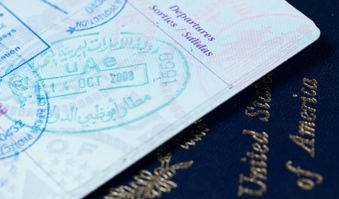A Guide to Mandatory Health Insurance Laws for Nationals and Expats in UAE
 14 Apr, 2023
14 Apr, 2023
Explore UAE's health insurance laws for nationals & expats. Understand healthcare requirements & implications in this guide.
DOH/DHA Medical Insurance Regulations
The UAE is renowned for offering excellent healthcare treatment facilities to its citizens and residents alike. The government has introduced new policies for nationals and expatriates for increased accessibility to the healthcare system. All citizens and expatriates living in UAE must mandatorily have valid health insurance.
Furthermore, health insurance laws stipulate that a health insurance plan must also cover residents’ and expatriates' dependents and family members.
Keep reading to learn more about the health insurance laws in the UAE.
Quick Read Section
- According to a law that went into effect on January 1, 2014, all citizens, resident and expats in Dubai are required to have a valid health insurance.
- As of 2023, health insurance is mandatory even in the northern emirates of UAE.
- The cost of basic medical insurance ranges from AED 500 to AED 700 per year.
Health Insurance Laws in Dubai
All resident expats in Dubai must have access to health insurance to receive access to high-quality medical care without worrying about their financial situation.
Moreover, the Essential Benefits Plan (EBP) clause must comply with all the new policies issued on or after January 1, 2015. Therefore, any such policies must outperform or at least have equivalent advantages of an EBP. The policy's exclusions must also stay within those of the Essential Benefits Plan.
The employee might obtain a separate health insurance policy for their family members if the employer does not provide coverage. The employer is solely responsible for complying with the health insurance obligation; the employee has no responsibility whatsoever. The employer is responsible for paying the employee's health insurance premium under the current policy.
Health Insurance Requirements to be fulfilled by Employers
Every company in the UAE is required by law to provide all its employees with medical insurance. These policies should offer broad coverage benefits for unexpected events, hospitalisation, outpatient care, testing, diagnostics, maternity care, etc.
Employees can also purchase basic medical insurance for a yearly price of AED 500 to AED 700. Such plans should have annual maximum coverage of at least AED 150,000.
In addition, an employee's health insurance policy is a significant factor during Dubai Residency Visa renewal process. This health insurance law aims to guarantee that all employees in Dubai abide by the rules established by the regulatory authority.
Health Insurance for Resident Expatriates
The employee's pay, position, and other factors affect how much coverage the employer provides for employees and their dependents. The expenses of your medical treatments would depend on the type of insurance and the coverage.
Employers and sponsors in the Emirate of Abu Dhabi are in charge of providing health insurance for their staff members and their families (1 spouse and three children under 18 years).
Employers in Dubai must offer their workers health insurance coverage, and sponsors must get insurance to protect their dependents.
Health Insurance for UAE Nationals
Abu Dhabi
All UAE nationals residing in Abu Dhabi are fully covered by the government of Abu Dhabi's "Thiqa" programme. A Thiqa card is given to each citizen, granting them full access to the many private and public healthcare providers registered within the Daman network. Also, it offers expanded geographic coverage and more health advantages.
Nationals between the ages of 18 and 75 must go through the Weqaya screening conducted by the Department of Health, Abu Dhabi, to be eligible for the Thiqa programme. Additionally, cardiovascular risk factors are identified during the health check, which is only waived in certain circumstances.
Dubai
A health insurance scheme called Saada is available to residents of Dubai. It offers insurance protection to residents of Dubai who are not currently eligible for government health programmes. The programme provides treatment through a vast network of private and DHA medical healthcare facilities. The Saada programme a citizen enrols in is listed on their Emirates ID card. Every resident in Dubai must have medical coverage that meets or exceeds the DHA's minimal standards according to the Health Insurance Law Number 11. You are qualified to get a health card under the terms of the labour legislation. This gives you access to many Dubai Health Authority (DHA) facilities, including hospitals and clinics.
Sharjah
Currently, for residents in Sharjah, health insurance coverage is managed by the Department of Health Insurance at Sharjah Health Authority. At first, the Sharjah government exclusively offered health insurance to its employees, their family, and senior Emiratis (60 years old or above). However, as of January 2020, it has extended to cover all Sharjah residents with insurance.
Ajman
All of the Ajman government's employees are covered by health insurance. On the website of the Ajman Government, you may find claim forms and an updated list of hospitals, clinics, and pharmacies that the health insurance network has approved.
How Can You Register for Health Insurance Claims?
There are two ways you can claim your health insurance coverage:
Direct Claim/Cashless Claims
You won't need to pay any expenses when filing for direct claims. Instead, your insurance company will immediately cover the medical costs. Direct claims are one of the most accessible claim submission options provided by insurance companies.
Reimbursement Claims
Further, in contrast to direct claims, with reimbursement claims, you must cover the medical costs upfront. After that, you can contact your insurance broker or provider with all the necessary paperwork to get a reimbursement. They will further examine the paperwork and promptly reimburse the necessary amount.
The health insurance laws in the UAE are a step towards ensuring that everyone can afford and receive high-quality healthcare. As a result, it is mandatory for everyone to abide by the regulations put forth by the regulatory authority. Yet, you have the freedom to locate alternative health insurance plans that better meet your requirements. In any case, always read the terms and conditions of the policy before committing to anything.
Contact us today for all your health insurance needs!

 Buy Now
Buy Now Online Plans
Online Plans





HAVE A QUERY?